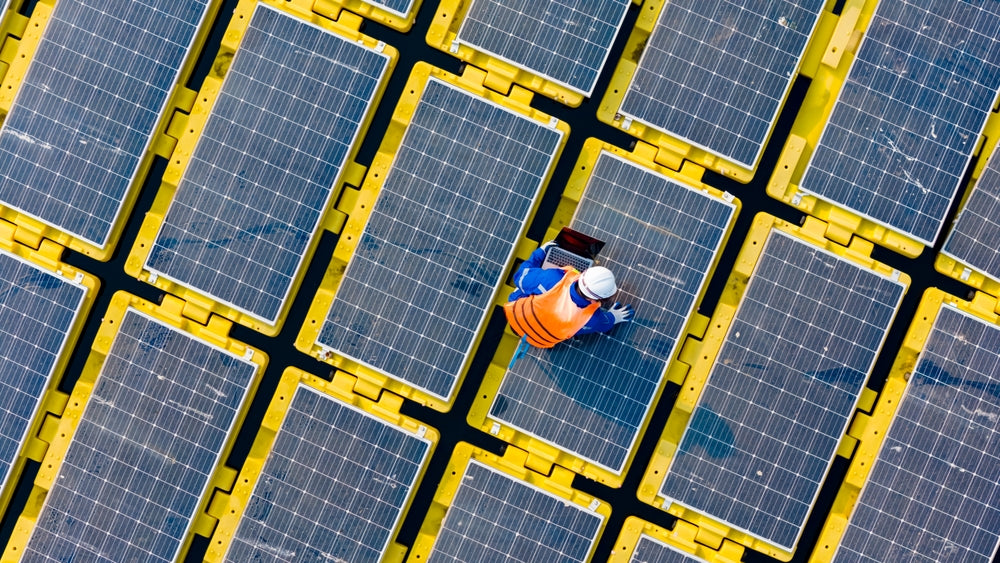
In a world increasingly conscious of environmental impact and sustainability, solar panels have emerged as a revolutionary technology to harness renewable energy. Understanding how solar panels work can help you appreciate the advantages of solar energy and make informed decisions about incorporating them into your lifestyle.
The Basics: How Solar Panels Generate Electricity
Solar panels work by converting sunlight into electricity through a process called the photovoltaic effect. This effect occurs when sunlight strikes the solar cells in the panels, causing the electrons in the cells to move, which generates an electric current. This current is then captured and converted into usable electricity to power homes, businesses, and various devices.
The Photovoltaic Effect in Simple Terms
To put it simply, solar panels are made up of multiple solar cells. When sunlight hits these cells, they absorb the light and create an electrical charge. This charge is then collected by wiring within the panel and directed to an inverter, which converts the direct current (DC) produced by the panels into alternating current (AC), the type of electricity commonly used in homes and businesses.
Components of a Solar Panel System
A complete solar panel system consists of several key components that work together to produce and distribute electricity:
- Solar Panels: These contain the photovoltaic cells that capture sunlight and generate electricity.
- Inverter: Converts the DC electricity generated by the panels into AC electricity.
- Battery Storage (Optional): Stores excess electricity generated during the day for use during the night or on cloudy days.
- Mounting System: Holds the panels in place, typically on the roof of a building or on the ground.
- Electrical Panel: Distributes the electricity generated by the solar panels throughout the home or business.
- Net Meter (Optional): Measures the electricity produced by the solar panels and sends excess electricity back to the grid, often earning credits for the homeowner.
Power House: A Pakistani Brand Leading the Solar Energy Revolution
In Pakistan, one of the leading brands offering high-quality solar solutions is Power House. Known for its innovative approach and commitment to sustainability, Power House provides a range of solar panels and complete solar systems designed to meet the needs of both residential and commercial customers. They offer durable and efficient solar panels, reliable inverters, and top-notch installation services, making it easier for people in Pakistan to harness the advantages of solar energy.
Power House stands out for its customer-centric approach, offering tailored solutions based on individual energy needs and consumption patterns. Their solar panels are designed to perform optimally even in the challenging weather conditions of Pakistan, ensuring maximum efficiency and energy output. By choosing Power House, customers can enjoy significant energy savings, reduce their carbon footprint, and contribute to a more sustainable future.
How Do Solar Panels Work on a House?
When solar panels are installed on a house, they are typically mounted on the roof where they can capture the most sunlight throughout the day. The solar panels generate electricity that is used to power the home’s appliances, lighting, and heating systems. Any excess electricity produced can either be stored in a battery system for later use or sent back to the grid, depending on the setup.
The process works as follows:
- Sunlight Strikes the Panels: The panels capture sunlight, initiating the photovoltaic effect.
- Electricity Generation: The solar cells generate DC electricity.
- Inverter Conversion: The DC electricity is sent to the inverter, where it is converted into AC electricity.
- Power Distribution: The AC electricity is distributed through the home’s electrical panel, powering appliances and devices.
- Net Metering: If connected to the grid, any excess electricity is fed back into the grid, potentially earning credits for the homeowner.
Advantages of Solar Energy
Understanding the advantages of solar energy can highlight why solar panels are an excellent investment:
- Renewable Energy Source: Solar energy is a renewable resource, meaning it will never run out as long as the sun exists.
- Reduces Electricity Bills: By generating your own electricity, you can significantly reduce or even eliminate your electricity bills.
- Low Maintenance Costs: Solar panels require minimal maintenance once installed, with most systems needing only periodic cleaning and inspections.
- Environmentally Friendly: Solar energy production does not release harmful emissions, making it a clean and green energy source.
- Energy Independence: By generating your own electricity, you reduce your dependence on the grid and fossil fuels.
- Increases Property Value: Homes with solar panels often have higher property values and are more attractive to potential buyers.
- Technology Advancements: Ongoing advancements in solar technology continue to improve efficiency and reduce costs.
- Job Creation: The solar industry creates jobs in manufacturing, installation, and maintenance.
- Scalability: Solar panel systems can be scaled to meet the energy needs of homes, businesses, and even large industrial complexes.
- Grid Security: Distributed solar energy systems contribute to grid security by reducing the load on centralized power plants.
How Long Do Solar Panels Last?
One of the significant advantages of solar energy is the longevity of solar panels. Most solar panels are designed to last between 25 to 30 years, with some even lasting longer. Over time, solar panels may experience a slight reduction in efficiency, but they will continue to generate electricity for many years. Proper maintenance, such as regular cleaning and inspections, can help extend the lifespan of your solar panel system.
Do Solar Panels Work on Cloudy Days?
Solar panels can still generate electricity on cloudy days, although their efficiency may be reduced. The panels rely on sunlight, and while clouds can block some of the sun's rays, they do not completely prevent the panels from working. In fact, solar panels are often still able to capture and convert diffuse sunlight on overcast days, making them a reliable energy source in various weather conditions. This adaptability is another key advantage of solar energy.
Can Solar Panels Work at Night?
Solar panels do not generate electricity at night because they rely on sunlight to produce energy. However, there are ways to ensure a continuous power supply even when the sun isn’t shining. Many solar panel systems are paired with battery storage solutions that store excess energy produced during the day for use at night. Alternatively, homes can remain connected to the grid, allowing them to draw electricity from it when the solar panels are not generating power.
The Advantages of Solar Energy in Different Climates
Solar panels are versatile and can be effective in various climates, which is another reason why they are becoming increasingly popular worldwide. In sunny regions, such as parts of Pakistan, solar panels can operate at peak efficiency for most of the year, maximizing the advantages of solar energy. Even in less sunny areas, solar panels can still produce a significant amount of electricity, particularly when paired with energy storage solutions.
How to Maximize the Benefits of Solar Panels
To get the most out of your solar panels and fully enjoy the advantages of solar energy, consider the following tips:
- Optimal Placement: Ensure that your solar panels are installed in a location that receives maximum sunlight exposure throughout the day.
- Regular Maintenance: Keep your panels clean and free of debris to maintain their efficiency. Schedule regular inspections to catch any potential issues early.
- Energy Storage: Invest in a battery storage system to store excess energy for use during nighttime or cloudy days.
- Energy-Efficient Appliances: Use energy-efficient appliances and lighting in your home to complement your solar energy system and reduce overall electricity consumption.
- Monitor Usage: Use a smart meter or energy monitoring system to track your electricity usage and optimize the performance of your solar panels.








